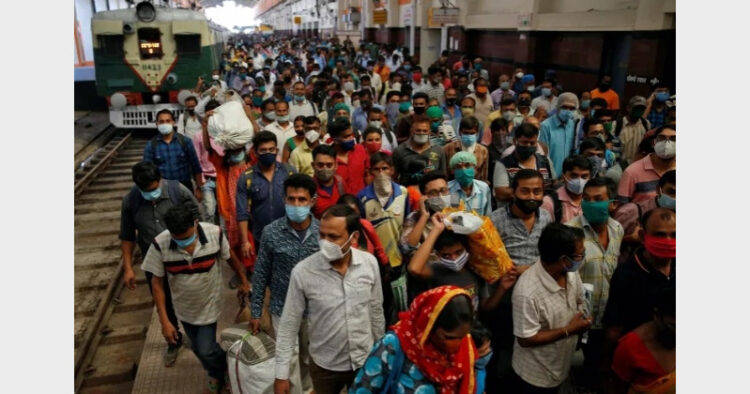The sars-coV-2 virus has put the world at a standstill from the beginning of 2020. This virus is responsible for the death of around 1.7 lakh people in India to date. But the numbers are now increasing after a short climb down and are now surpassing all the records of the first wave peak.
After the initial reduction in the number of COVID-19 positive cases, 9th April marked the third consecutive day with more than 100,000 cases. India being the global hotspot, Maharashtra was the new hotspot with one third of the total cases (60,212 on 13nd April) reported in India. All the non-essential services in the state have been put on halt. Other states like Punjab, Kerala, Chattisgarh and Madhya Pradesh are reporting surge in the number cases. Mortality rates are also elevating.
The central government is pressurizing the states to increase Reverse Transcriptase- RT PCR tests and is conducting the world’s biggest vaccination drive.
India’s vaccination drive had started on January 16th. Currently, two vaccines are approved by the government for usage in India namely Covidsheild developed by Serum Institute of India, and Covaxin developed by Bharat Biotech. Both the vaccines boost the immune system by producing antibodies against the Sars-coV-2. Vaccine manufacturers are producing vaccines at the threshold limit to vaccinate a country with a 1.3 billion population promptly.
Lack of proper preventive measures against the viral infection makes it impossible to fight the pandemic. People are not wearing the mask, not maintaining social distancing by crowding in trains and buses, markets, marriages, funerals, Restaurants, Bars, and other events.
“The pandemic isn’t over and there is no scope for complacency” the Union Health Minister had tweeted on April 2nd.
In the very beginning of the COVID-19 virus spread in India, the Prime Minister had imposed a national lockdown even when he knew that India’s GDP would suffer in the lockdown. He ensured that nobody remains without food in those hard days by amending features of the Pradhan Mantri Garib Kalyan Scheme, MNREGA, etc.
It should be the responsibility of every citizen of India to control the pandemic. Vaccinating a nation of 1.3 billion people on a single go is impossible. The government has now allowed every individual above 45 years to get vaccine jabs.
During this COVID-19 second wave, the Union government is taking every possible step to control the spread of the pandemic. Now, the onus is on people to cooperate with the government in these difficult times.
(The author is a Research Fellow at the Department of Research, Sir Ganga Ram Hospital, New Delhi)














Comments